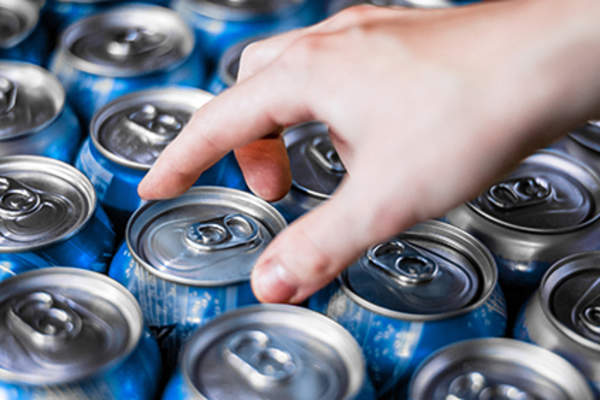Diabetic? Why You Should Avoid Diet Drinks


If you have diabetes, you may think it's healthier to choose a diet drink or an artificial sweetener. It’s time to rethink your choices. Diet drinks and artificial sweeteners pose many health risks to people with diabetes. Let's take a look at the latest research.

Risk: Vision Loss
A2018 studyfound that drinking only four or more cans of a diet soft drink per week more thandoublesyour risk ofproliferative diabetic retinopathy(PDR). PDR is an eye-related complication of diabetes. In PDR, abnormal blood vessels develop in the eye and increase your risk of vision loss and blindness.

Risk: Impaired Glucose Tolerance
Drinking diet soda every day is associated with a36 percent increased risk of metabolic syndrome and glucose intolerance. These conditions make your body less effective at releasing and responding to insulin. That means it’s harder tomanage your blood sugar.

Risk: Increased Blood Sugar Levels
Like many people with diabetes, you may believe that artificial sweeteners can't raise your blood sugar. Butsome studies have shownthat the artificial sweetener aspartame actuallyincreasesblood sugar and insulin levels at similar rates to regular sugar. More research is needed to look at whether other artificial sweeteners have the same effect.

Risk: Eating More Calories
Controlling weight is already an issue for many people with diabetes. A2014 studyreported that people who were overweight and drank diet sodas ate between 90 and 200morecalories from food per day. The theory is that you don't get enough reward from artificial sweeteners, which leads to overeating calorie-rich and sweet foods.

Risk: More Belly Fat
Belly fat contributes to insulin resistance. It can also makeblood sugar managementharder.Research showsthat daily or even occasional diet soda drinkers gain nearlythree timesas much belly fat as non-drinkers.

Risk: Stroke and Heart Disease
Patients with diabetes already face anincreased risk of stroke and heart disease. Artificial sweeteners deal an added blow.An American Heart Association/American Stroke Association studyfound that drinking two or more artificially sweetened beverages per day increases the risk of stroke by 23 percent, and heart disease by 29 percent.

Risk: Depression
Depression is already more common in people with diabetes. Diet drinks make it worse.Research has foundthat drinking four or more cans of diet soda per day makes you 30 percent more likely to be diagnosed with depression.

Risk: Dementia
Having diabetes is a risk factor for dementia.Now,research showsthat drinking at least one diet soda per day is linked tothree倍患痴呆症的风险。

Risk: Gut Bacteria Imbalances
A healthy balance of gut bacteria isessential to metabolic and immune health.Research showsthat drinking diet soda changes the composition and behavior of your intestinal bacteria. Bacterial imbalances can contribute to metabolic syndrome, glucose intolerance, and inflammation. These conditions make diabetes treatment harder.

Risk: Insulin Resistance and Type 2 Diabetes
Even if you have type 1 diabetes,胰岛素抵抗ancecan make your treatment more difficult. A英国营养学杂志》上的studyfound that people who drink diet sodas raise their risk of insulin resistance and type 2 diabetes by about 13 percent for each 12-ounce can they drink each day.

What About Stevia?
The four most commonly used artificial sweeteners – and the ones most often used to sweeten in diet drinks – are aspartame (Equal, NutraSweet), sucralose (Splenda), saccharin (Sweet 'N Low), and acesulfame K. While research has focused primarily on these chemical sweeteners,some experts theorizethat as a non-caloric sweetener, stevia may share many of the same risks and downsides.
